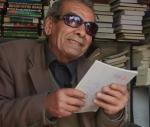You are here
‘Important to hold the guilty accountable’
May 20,2015 - Last updated at May 20,2015
The fall of the strategic Iraqi city of Ramadi last weekend to Daesh amounts to a decisive blow to the confused and contradictory strategies US, European and Arab powers have adopted towards the conflicts in Iraq and Syria.
Not only did Daesh, finally, take Ramadi after months of struggle, its fighters followed up by making an attempt to drive pro-government forces from Khaldiya, which lies between Ramadi and Falluja.
This effort demonstrates that Daesh forces have not been overstretched by the occupation of Ramadi and that the group is prepared to take more territory.
In would seem, rather, that the Iraqi army, special forces, police and even the Shiite militias operating in the conflict are overstretched and outgunned.
Last Friday, two days before Ramadi fell, Brigadier General Thomas Weidly, who heads “Operation Inherent Resolve”, claimed at a Pentagon press conference that “overall Daesh is on the defensive. We will see episodic successes… but these, typically, don’t materialise into long-term gains”.
He was trying to put a brave face on what was a signal of defeat for the Iraqi army, its Shiite militia allies, and the US-led coalition that bombs but does not deploy boots on the ground.
The 25,000 Ramadi residents who fled the city after Daesh seized power do not see the collapse of the government’s defenders as a short-term loss because if and when they return, the refugees are likely to find their shops, businesses and homes blasted or looted and wracked.
Ramadi has been a key objective for both Daesh and Baghdad for the past 17 months, since Daesh elements took control of certain sectors of the city as well as the iconic city of Falluja.
Ramadi is the capital of the Anbar province, Iraq’s largest, and lies across the main highway from Baghdad to Amman, an hour’s drive from the capital.
Ramadi is a conservative Sunni tribal city, lawless even during the reign of president Saddam Hussein.
Baghdad has ordered Iranian-backed Shiite militiamen to stage a counteroffensive against Daesh in Ramadi, raising concerns that Sunni civilians could once again be targeted and victimised by such fighters.
Consequently, Sunni tribesmen are loath to take part in operations that are, in their absence, transformed into sectarian warfare.
The Iranian role in this particular battle was emphasised on Monday with the arrival in Baghdad of Iran’s Defence Minister Hossein Dehghan, a former airforce officer who helped train Shiite forces in Lebanon during Israel’s invasion of that country in 1982-83 and is said to be partly responsible for the October 1983 bombing of the south Beirut barracks of the US marine corps and French paratroopers that killed 299 servicemen from both countries.
His presence in Baghdad makes it all the more ironic that the US should be conducting bombing runs against Daesh forces to back up Iraqi troops and militiamen supported by Tehran in this conflict.
His appearance also reveals that Tehran is seriously concerned about the Daesh rout of Iraqi government forces in Ramadi, recalling the flight of regular army troops from Mosul last summer and indicating that fresh training and better arms have not boosted the staying powers of the Iraqi army which has never recovered from its disbandment following the 2003 US invasion and occupation.
In Ramadi as at Mosul, the troops not only fled their posts but also abandoned US-issued weapons and military vehicles in their hurry to escape hundreds of Daesh fighters, leaving open and undefended the highway to Baghdad.
This prompted the mobilisation of 1,500 Shiite militiamen belonging to Asaib Ahl Al Haq and the Badr Corps, Iranian-backed Shiite militias feared by Sunnis.
Desperate anti-Daesh Sunni tribesmen have called for the entry of these fighters, known for ferocity, as Sunni tribal units have not been armed properly by the government and have been repeatedly let down by the army, special forces and police.
US training and arming of regular troops has, once again, been a failure, while Iran’s allies in the field have proved their skills and readiness to fight and die to defeat Daesh.
The most recent example of this hard fact was the liberation of Tikrit in March, when Shiite militiamen played a decisive role in spite of a call from Washington that they should not be in the front line.
Although Washington does not like to admit it, Shiite militiamen, bolstered by advisers from the Iranian Revolutionary Guard’s elite Quds force, are playing an increasingly important role in the Iraqi campaign against Daesh.
It is also ironic that the fall of Ramadi should coincide with a New York Times column by Nobel economics prize laureate Paul Krugman calling for a frank assessment of the Bush administration’s 2003 war to topple Saddam, a war that has been the cause of the turmoil Iraq and Syria are now suffering.
Krugman makes the point that US politicians and voters cannot simply claim that the Bush administration made a “mistake” and the US should simply “move on”.
This does not suffice. He insists that the US must admit that it waged war on the basis of lies and “outright fraud” and take action against those who lied “America into war”.
He wrote: “... truth matters, and not just because those who refuse to learn from history are doomed... to repeat it. The campaign of lies that took us into Iraq was recent enough that it is still important to hold the guilty individuals accountable,” including those who lead the foreign policy team of Republican candidate Jeb Bush, brother of George W. Bush, the man who committed the Iraq fraud that continues to disrupt and destroy the lives of millions Iraqis, Syrians and other citizens of this region.













